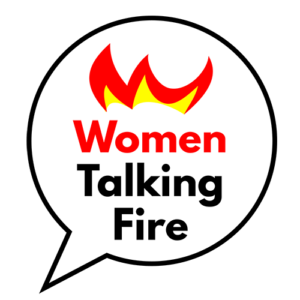Here, Andrea White offers a perspective on why success in recruiting and retaining talent in the fire industry is about so much more than financial incentives in 2023. At a time when talent is at a premium, commitment to diverse, inclusive and equitable principles must be genuine to open up the sector to all the talent that’s available, Andrea explains.

Most of us will be able to relate to this situation at present. The demand for fire safety professionals far exceeds supply, pushing salaries to unprecedented levels and creating opportunities for career progression to those with less-than-ideal levels of competence. So, what to do?
I suggest that perhaps we need to think differently, both at the macro and the micro level; both within our industry and within our own companies. After all, if you always do what you’ve always done, you will always get what you’ve always got.
Perhaps now is the time for a rethink; to look at doing things differently; to consider different perspectives.
As I sit drafting this article, another friend phones. She recently started a job with a fire safety consultancy. After less than a fortnight, she has just resigned. I ask what happened: “It wasn’t the right place for me,” was the answer.
A week later, with the help of several friends in the industry, she finds a new employer and the fit is better. She is happy in her new workplace and she stays.
“The days of following the highest salary are gone”
I sense that the days of following the highest salary are gone; that individuals are now looking for more than just financial recompense and employer pension contributions. My teenager confirms that the next generation’s career priorities focus more on being able to make a difference than being able to make lots of money. He is also unwilling to tolerate a toxic work environment, unlike my own generation who were more accepting of negative company cultures.
Since I began working in our industry some 25 years ago, I have watched more women enter the fire safety profession – statistics now suggest that 8% of the industry are female.
However, take a deeper look and you will see that the disparities are more pronounced. Administrative roles are most likely to be undertaken by women, while director roles are most likely to be held by men.
Decision-makers can suffer group think if homophily – the tendency for people to seek out those who are similar to themselves – is at play. And will those decision-makers necessarily understand the wants and needs of existing and potential employs?
- Can they imagine what the next generation are looking for in an apprenticeship?
- Can they appreciate what dispensations the single mother needs to be able to be both parent and financial provider?
- Can they offer a suitable interview environment to the neurodiverse candidate so they can best demonstrate their abilities?

 Not just the diversity rhetoric or clever strapline on the corporate email footer, but encouraging and facilitating open conversations and opportunities to ensure that all professionals are valued for their contributions, supported to reach their goals and can be their best selves at work and at home.
Not just the diversity rhetoric or clever strapline on the corporate email footer, but encouraging and facilitating open conversations and opportunities to ensure that all professionals are valued for their contributions, supported to reach their goals and can be their best selves at work and at home.